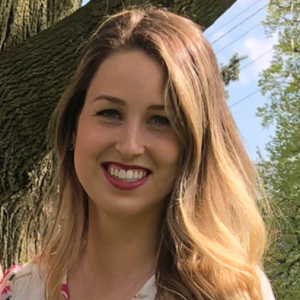
Sarah Lavallee
Ph.D. Candidate
Environmental Studies
Queen's University
2018 - Present
Supervisor(s): Anna Majury, Stephen Brown, Paul Hynds
Research Project: Exploring the knowledge, attitudes and practices of current well water stewardship in rural Ontario communities: Implications for drinking water vulnerability and public health risk
Ontario has one of the largest groundwater-reliant populations in Canada, with approximately 1.6 million households utilising private wells. Unlike municipal drinking water systems, private drinking water wells are not required to meet the regulatory standards under the Ontario Safe Drinking Water Act (2002) and the Ontario Clean Water Act (2006) and well owners are the primary agents responsible for managing their drinking water. Well water testing, has previously been examined as an important indicator of stewardship behaviour. However, a previous Ontarian study found that just 11-12% of well owners complied with provincial water testing guidance (three tests per annum) during any year between 2008 and 2012 (Maier et al., 2014) suggesting the presence of significant gaps in knowledge and/or tools for stewardship. In Canada, it is estimated that approximately 80,000 AGI cases per year were due to the presence of microbial pathogens in untreated private drinking water wells. Thus, it is critical to acknowledge the human-water system as coupled allowing for the integration of not only physical, but social pathways that can contribute to contamination.
The social pathways and the extent to which a well owner’s knowledge, attitude and practices (KAP) contribute to the likelihood of contamination has yet to be appropriately addressed in exposure risk assessments for drinking water wells. The aim of my research is to identify and assess the gaps associated with current private well water stewardship; namely, KAP, in order to contribute to the development of a knowledge tool that will enable and support positive stewardship behaviours and ultimately minimize potential adverse health impacts. This project will focus on understanding and assessing water issues in two rural communities in southeastern Ontario by conducting community-based research methods including an online survey, focus groups, and semi-structured interviews.
Latchmore T, Lavallee S, Boudou M, McDermott KJ, Brown S, Hynds PD, Majury A. (2021) Impacts of COVID-19 lockdown on private domestic groundwater sample numbers, E. coli presence and E. coli concentration across Ontario, January 2020–March 2021: An interrupted time-series analysis. Science of the Total Environment, 814: 152634.
Mooney S, O'Dwyer J, Lavallee S, Hynds PD. (2021) Private groundwater contamination and extreme weather events: The role of demographics, experience and cognitive factors on risk perceptions of Irish private well users. Science of the Total Environment, 784: 147118.
Lavallee S, Latchmore T, Hynds PD, Brown S, Schuster-Wallace C, Dickson-Anderson SE, Majury A. (2021) Drinking Water Consumption Patterns among Private Well Users in Ontario: Implications for Exposure Assessment of Waterborne Infection. Risk Analysis, 41(10): 1890-1910.
Lavallee S, Majury A, Brown S, Wallace C, Dickson-Anderson SE, Di Pelino S, Egan R, Hynds PD. (2020) Examining influential drivers of private well users' perceptions in Ontario: A cross-sectional population study. Science of the Total Environment, 763: 142952.